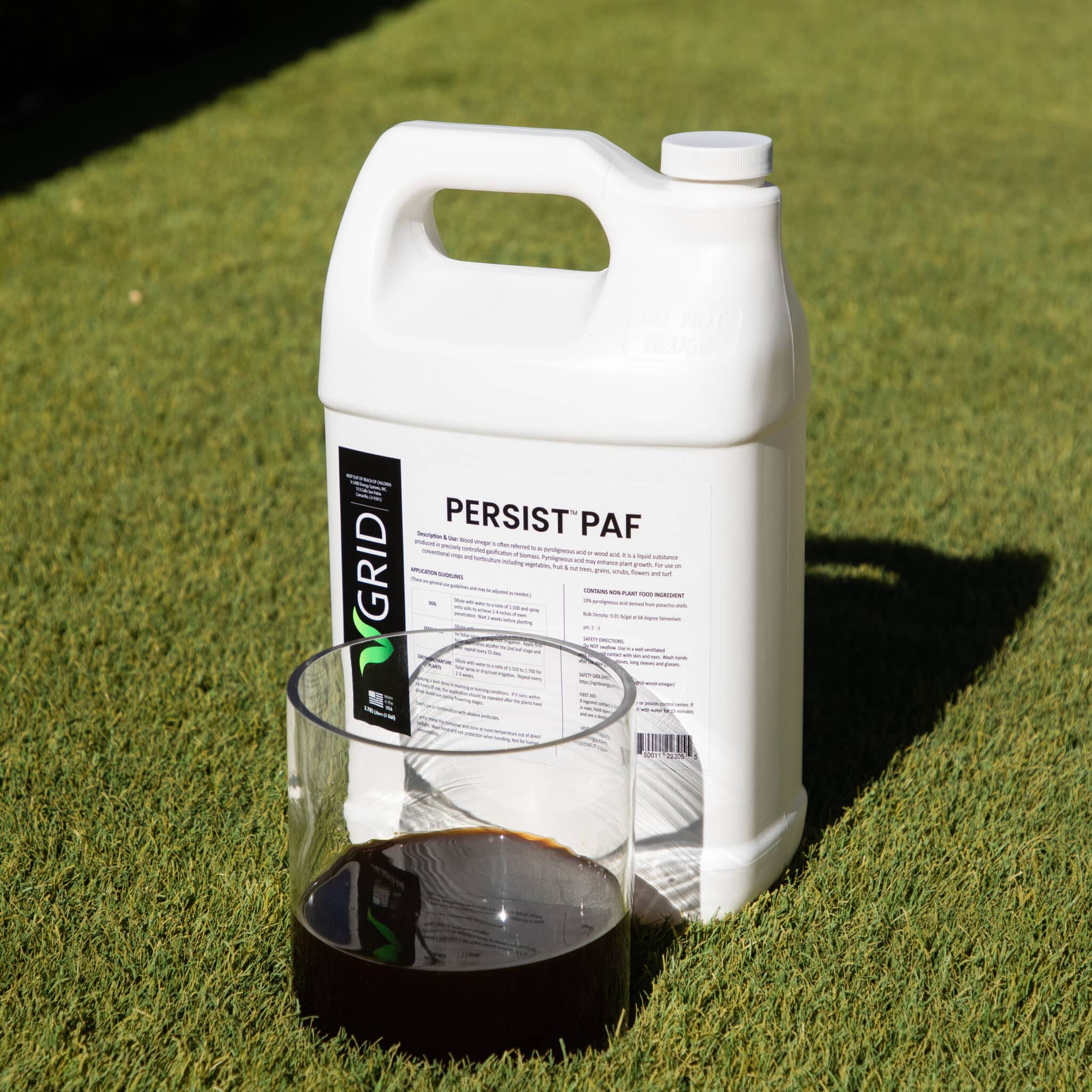Key Takeaways
- Microbial Impact: Persist® PAF-treated biochar significantly increased beneficial bacterial populations in hydroponic systems.
- Yield Comparison: Tomato yield was highest in systems using PAF-treated biochar.
- Substrate Performance: PAF outperformed both untreated and acid-treated biochar, as well as standard coir slabs.
- Soil Health Implications: The treatment supported a more diverse and active microbial community in the root zone.
- Potential Application: Results support broader interest in sustainable inputs for controlled-environment agriculture.
Persist® PAF Application in Biochar Leads to Higher Bacterial Activity and Yield
A recent academic study in the Netherlands has found that Persist® PAF, a liquid enhancer for plants and soil, increased beneficial microbial populations when used to treat pistachio shell biochar in hydroponic tomato production. Over a 23-week cultivation period, researchers compared the performance of several growing media, including coir slabs, untreated biochar, acetic acid-treated biochar, and biochar pre-treated with PAF.
Using quantitative PCR (qPCR) and DNA metabarcoding techniques, the study measured bacterial presence and diversity within both the growing media and the tomato rhizosphere.
PAF-Treated Biochar Shows Highest Yield and Microbial Diversity
Among all treatments, the PAF-treated biochar produced the highest tomato yield and the greatest abundance of beneficial bacteria. In particular, bacterial phyla such as Nitrospirae and Firmicutes, which are associated with nutrient cycling and plant resilience, were notably more prevalent in the PAF-treated samples.
The results indicate that PAF’s effects extend beyond pH adjustment, as the product’s formulation appears to support a stable and diverse microbiome in the plant’s root zone.
Study Highlights Long-Term Impact of Persist® PAF on Root Zone Biology
According to the study, the microbial community in the PAF-treated biochar remained active and beneficial throughout the entire growing period. These conditions support improved nutrient availability and may enhance the resilience of crops under hydroponic cultivation.
Compared to acid-only treatments, PAF-treated biochar maintained more consistent microbial activity and a richer diversity of bacterial species, suggesting additional functional benefits beyond acidification.
Industry Perspective on the Findings
Jeff Norton, Vice President of Business Development at VGrid, commented on the results: “We’re excited with these results. They further confirm what we’ve seen in previous trials and the field—PAF improves plant vigor and drives positive change to the microbiome. The PAF-treated biochar also significantly outperformed acetic acid-treated biochar, showing that PAF’s benefits aren’t just about lowering pH—its unique chemistry is driving the results.”


